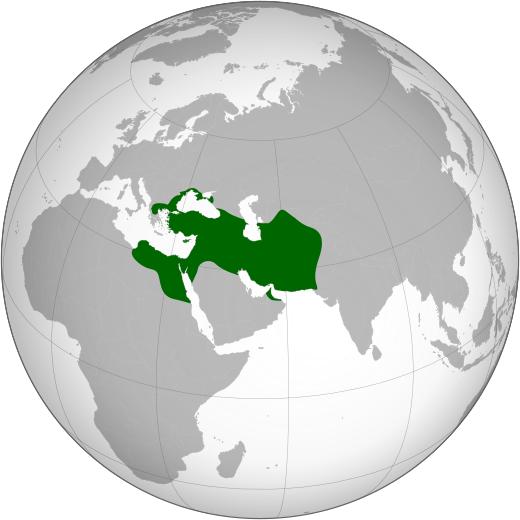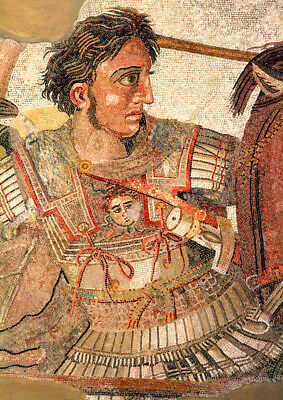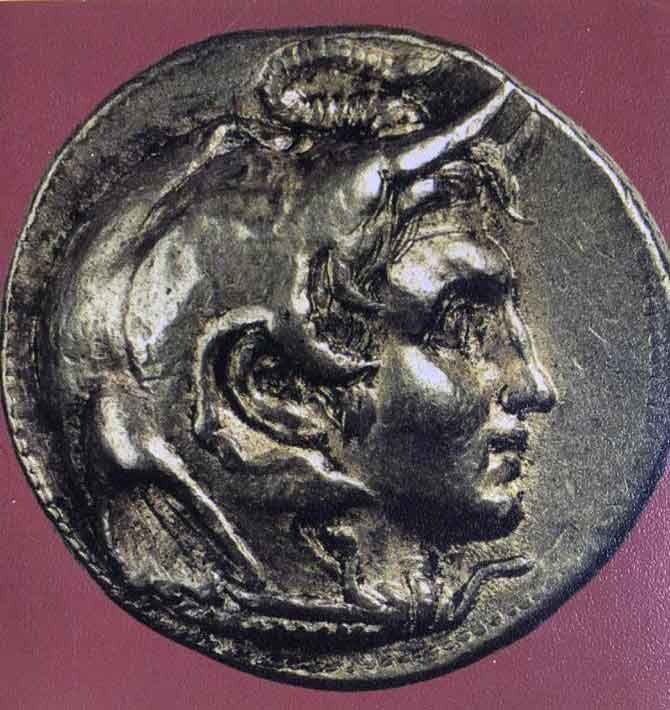Preface 2023
Preface – magazine 2023 A contemporary magazine feeds upon dynamism and vigour. It instantly perceives the inputs deriving from the readers and evolves, offering its best at...
Preface – magazine 2023 A contemporary magazine feeds upon dynamism and vigour. It instantly perceives the inputs deriving from the readers and evolves, offering its best at...
In early June, more than 2300 years will have passed since the death of Alexander the Great; in fact, the Macedonian king died in 323 B.C., at 32, after a very short illness. The...
At the port of Livorno, no one had noticed the rustling of that bulky cloak. Blessed by the most desiring stars, the curved shape of Settimontano Squilla was embarking on a...
Interview with Dr Enrico Chiavacci, Marketing Director at Marchesi Antinori. In the time of Covid-19. A distanced interview with Dr Enrico Chiavacci, Marketing Director at...
An encounter with the agronomist Sonia Donati The clear blue sky, the approaching spring light and the vision of Florence from the rooftop bar where we meet: it all looks like a...
A Sicilian story Every Friday, I have dinner with tuna salad. For years now. This weekly ritual also carries a previous phase: the purchase of cans, caskets of fish. I’m not...
An encounter with Paolo Baracchino Excellent wine critic “I hate wood. I hate the overloading feeling of wood, which must be of help in the blend and not hide any...
The rigorous and meticulous Immanuel Kant, the milestone of modern philosophy, pleasure and pain of high school students, also had its own detailed “gastronomic...
An interview with Dr Andrea Sodaro It is always a joy when Andrea Sodaro and I get in touch or meet. We have known each other for many years, since after he got his high school...
The garden of Daniel Spoerri, Founder EAT ART Old maps register it under the name of “Il Paradiso”. We are on the slopes of Monte Amiata, in front of the picturesque...
Since the dawn of time, man has tried to get in touch with the gods, perceived as superior intelligence, through the modified states of consciousness, both with the help of...
In early June, more than 2300 years will have passed since the death of Alexander the Great; in fact, the Macedonian king died in 323 B.C., at 32, after a very short illness. The young ruler had conquered the immense Persian Empire in just twelve years, stretching his dominion from the Hellespont to the Indus River, from the Caspian Sea to the Indian Ocean and the Persian Gulf, and Egypt. Ancient writers – among the many, for brevity, I will mention Plutarch and Arrian – have narrated this epic and dramatic story. They described the gradual worsening of the leader’s health conditions, until the end when he eventually died, all about in ten days.

The inclination of the king for wine is well known. Historians affirm, for example, that years earlier he had killed, at the end of a symposium in Samarkand, one of his generals Cleitus. They quarrelled bitterly, and Alexander was drunk.
Alexander felt unwell after having feasted and, above all, drunk. He was in Babylon, the city where he settled his court, and one of the capitals of the conquered empire. Arrian (The Anabasis of Alexander VII, 25.4) reports that the king “banqueted with his friends and drank until late at night” and that, when he was about to retire, “he met Medes and begged to accompany him to a party: it would have been a lovely party.” Other companions, including Cassander, Nearchus and Ptolemy, also participated in this symposium organized by his friend Medes of Larissa. Here a young cupbearer, Iolaus, poured the wine. He was Antipater’s son and Cassander’s brother. The latter was the person who, some years later, would exterminate the Argead family: the queen mother Olympiad, the widow Roxane with her son Alexander IV, her natural son Heracles and the king’s half-brother Philip Arrhidaeus. They immediately suspected the cupbearer Iolaus of having poisoned the sovereign. Please note that Olympiad, Alexander’s mother, dispersed the remains of the young man, after his death in 317. She believed him to have been the material executor of the poisoning. On the sidelines, I would like to recall that the Athenians, Alexander’s enemies, after his death, paid homage to the cupbearer Iolaus!
On one very evening of June, Alexander, who had drunk an entire amphora of undiluted wine, the so-called “cup of Heracles” (more than 5 litres of genuine wine), suffered severe back pain. A sharp pain, as if a spear had pierced him, followed by sickness. A little time later, feeling better, he started drinking again. After a day of forced rest and a bath in cold water to withstand better the fever that had meanwhile taken over, Alexander attended a symposium at Medes and got drunk, in the attempt to quench his tormenting thirst. In the next days, with an increasingly high temperature, he tried to carry out his royal duties, but on the 24th of the month of Desio (in the Macedonian calendar, it corresponds approximately to 9 June) his conditions worsened and he was bedridden. The following day, he lost first the ability to speak and then his consciousness, until the 28th of Desio, and eventually died in the evening.
I am not going to report the copious hypotheses of contemporary scholars regarding the possible causes of Alexander’s death (malaria, typhus fever, pancreatitis, cirrhosis, etc.). I will limit to remembering only what ancient historians affirmed. Plutarch (Life of Alexander) and Arrian describe in details the evolution of the sovereign’s illness. Their chronicles agree, since based on a common source, the “Ephemerides”, a sort of court journal, which was prepared and made public daily. However, historians also report the rumours that spread in Babylon among the king’s courtiers and companions. They said that the cupbearer had poisoned Alexander, on the orders of Antipater, the regent of Macedonia. Antipater, because of his disagreement with Alexander and his mother Olympiad, had been summoned to Persia for clarification, which, given the king’s suspicious and vindictive character, would certainly lead to his elimination! Therefore, Antipater and his son Cassander planned a conspiracy, later executed by the young Iolaus. To date, there are no valid elements to make us favour the thesis of the poisoning to that of the disease. However, we must make some considerations. Alexander was in good health; he had received good medications for a bad lung injury caused by an arrow struck at him in India. Just in his final days on earth, he was planning to leave with the army and navy for a new expedition to Arabia. We also know that Macedonian troops were unhappy for having been at war for many, long years, fighting in harsh campaigns, for being decimated while crossing the Gedrosian desert, and for having been partially integrated and replaced by Persian soldiers. (Plutarch 71).

Not only were the veterans unhappy, but also the “hetairai”, his companions, felt the same way. Alexander had removed several of them during the expedition and some of them certainly thought of a possible succession. Alexander’s wife, Roxane, who would give birth to the heir shortly thereafter, felt threatened by her husband’s new marriages with the princesses Parysatis and Stateira. She similarly believed that Stateira was already pregnant. It was also rumoured that Aristotle, the old master, resentful of the elimination of his nephew Callisthenes, the historian of the expedition, was the inspiration behind the conspiracy. In short, everyone had reasons for resentment against Alexander! Therefore, the Macedonian passed away at the right time and in the right place, in the complicit atmosphere of the court of Babylon, when he was not at war but surrounded and defended by his trusted men.
At this point, it is necessary to reflect on the fact that the sources report that the “Cup of Heracles” the sovereign drunk from, contained undiluted wine. The Greeks, from the Homeric age, used to add fresh water to wine, generally with the proportion of three parts of water and one of wine. They harvested the grapes not in September but in early October, obtaining a more alcoholic wine. The wine aged in large terracotta pots, the “pithoi” (3.5 meters in height and 1m at the mouth) buried and covered in resin and pitch so that the liquid did not transpire. As a result, this wine took on a resinated aftertaste, but adding honey and other spices to it, the taste of the drink became more similar to our dessert wine than to table wine. Therefore, it would have been easy to blend the poison with pure wine and its aromatic flavour! However, that evening, despite feeling bad, Alexander started drinking again and got drunk the next day when he banqueted again with Medes. The result was that the king, after these two symposia, had a very high fever, could not utter any word and fell into a coma. Arrian and Plutarch (77, 5) report that after Alexander’s death “having the generals disagreed for several days, the body remained in warm and humid rooms, not subjected to any treatment…but remained uncorrupted and fresh”. The Roman historian Curtius Rufus (1st century AD) writes, “When friends finally had the opportunity to dedicate their attention to the lifeless body, those who had approached him did not notice any alteration by decomposition, not even by the slightest level of fluidity” (X, 10, 12.) A truly surprising fact, considering the heat and humidity of the Mesopotamian summer, which reaches a maximum temperature of around 42 °C in June!

I would like to delve in one last consideration: arsenic was a poison known in ancient Persia by the name of “zarnik” while the Greeks knew it under the name of “Arsenikon” (Aristotle and Theophrastus already described it in the 4th century). We know that, in recent times, they have used such substance extensively in the embalming processes, only replaced in the 19th century by formaldehyde. Aware of the fact that this is only a hypothesis that needs further investigation, now, I will leave out the strong suspicion that it may have been arsenic, which, by the way, is odourless and tasteless, the poison used to kill the king. I will rather speculate on the fact that Alexander the Great would have turned 33 a few months after his death, and that in his short life, he had conquered an immense empire and spread the Greek language, alphabet and culture throughout the Middle East.
ANNA CAFISSI